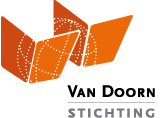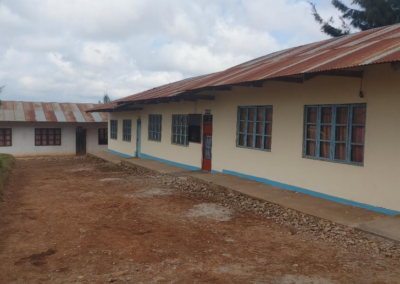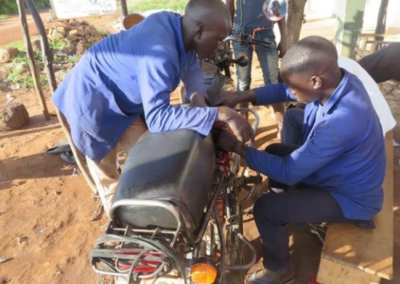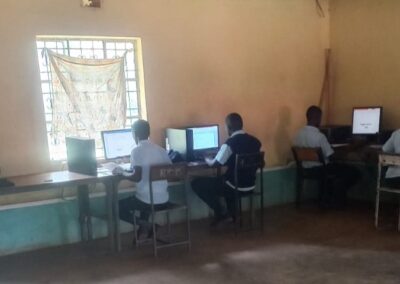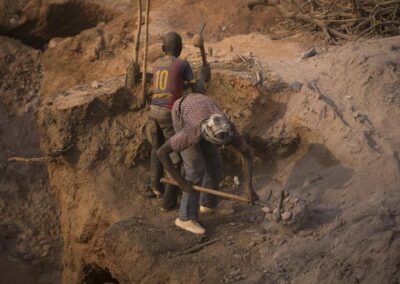CUWEDE is a community-based organisation in Nebbi district – Uganda that started early 2020 a vocational training centre in Erussi with training courses in tailoring, carpentry, welding, and apiculture. It obtained the training tools for these courses from Gered Gereedschap. As requested by the community it intends to add a fifth training course (leather processing).
An amount of € 4,000 is needed for the purchase of machines and tools, for which the Van Doorn Foundation is looking for sponsors!
Amount required: € 4,000.-
Project information
The situation
Nebbi district in Northern Uganda is one of the poorest districts, has seen multiple conflicts and wars and an influx of refugees from Congo and South Sudan. Unemployment and limited survival opportunities are some of the burning issues among the youth in Nebbi. Due to lack of right skills, the youth are unable to tap and utilise available local resources around them to earn a living. Majority of young people have become idlers and migrant workers living as destitute and earning little income (from hand-to-mouth) with little hope of living decent lives.
The importance of the project
Despite the prevailing unfavourable environment in the district, positive initiatives are taking place in specific leading enterprises such as agriculture, construction, and manufacturing. These enterprises are growing slowly because of the lack of skilled labour relevant to their enterprises. The abundance of unemployed labour, especially youth in Nebbi, represents an important potential to meet the labour demand of the growing sectors, but this is only possible if their skills are aligned with the needs of the growing enterprises. Because of the absences of major government tertiary institutions in Nebbi most students from Nebbi chose to enrol in tertiary or vocational skills outside Nebbi, in Arua and Pakwach district. However, that has been to the advantage of students from well-off families leaving those from poor families to drop out and become regular farmers or street idlers. CUWEDE training centre fills the gap and offers the skills training which is in high demand.
The implementing organisation
CUWEDE felt compelled to do something for the large group of vulnerable unskilled, unemployed young people in an environment where there is demand for (skilled) labour.
CUWEDE has over 15 years’ experience in community empowerment and relevant management and financial competencies. It developed a strategic partnership with Nebbi Catholic Diocese and Orussi Catholic Parish in ensuring cost efficient, effective and wider geographic impact.
In November 2019, CUWEDE received an in-kind tools donation from the Stichting Gered Gereedschap and with it opened a vocational training and skills centre in Erussi sub-county in February 2020.
The envisaged project results
In addition to the existing training in tailoring, carpentry, welding and apiculture, the project, (training in leather processing) will create opportunities for the young people especially out-of-school boys and adolescent girls from the local community in craft and leather skills (in making sandals, belts, wallets, and key holders).The training lasts six months, and about forty students will be trained annually in these leather processing skills. All of them will thereafter be fully engaged in income generating activities, employed or self-employed. This will ensure their self-reliance; reduce incidences of begging, survival sex, gambling, drug abuse and others. This will not only enable them to provide financially for their families but will build their self-esteem and give them confidence for their futures.
The chance of sustainability
The training centre has classrooms and workshops and instructors for all courses. Recently a school business plan has been prepared to support the professionalism and sustainability of the training centre. The tailor and carpentry courses last one year, and the apiculture and leather processing courses six months. Students pay € 90 training fees, which covers 50% from the training cost (instructors, training material etc.). For the remainder the centre is depending on subsidies from government and donations from sponsors.
The practical-oriented training courses will enable students to make assignments, deliver products that can be sold, and generate additional income for the centre to pay for the course material.
While government is expected to continue to subsidize the training centre (25%), it intends to reduce its dependency on donors over a period of three years from 25% to 5%. Sales and revenues from products made during the training will make this possible.
The required funds
€ 4,000 is required to purchase teaching materials for leather processing training (machines and tools). The Van Doorn Foundation is looking for sponsors to support this project!
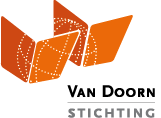
Dear visitor,
We are grateful that you are willing to support us with a donation!
Please fill in the fields below and push the button PAY to transfer the amount by iDeal.
